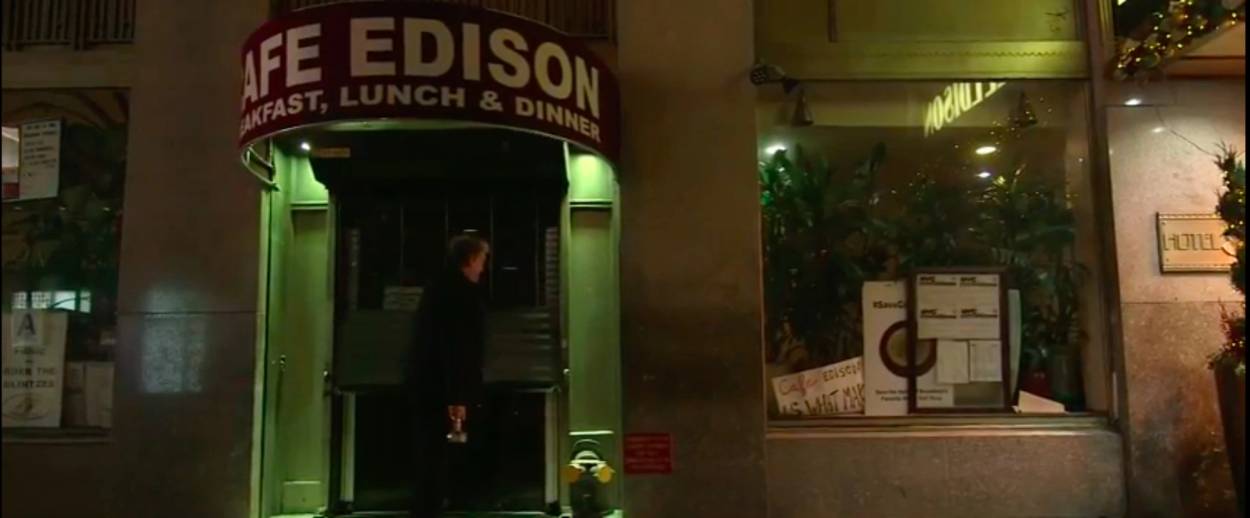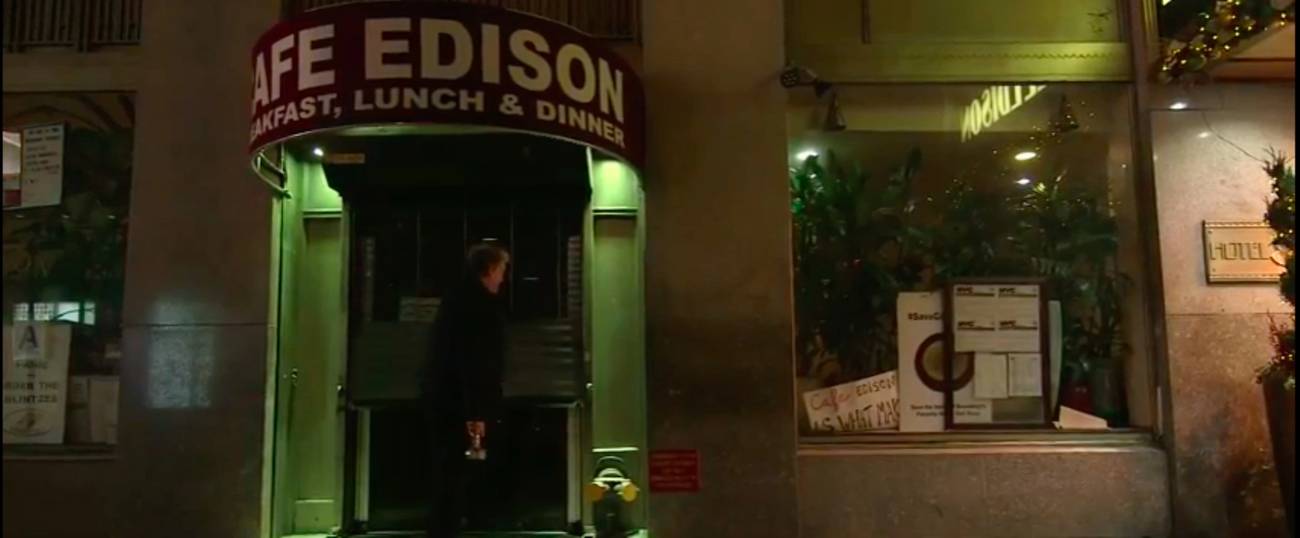She Made Beautiful Borscht out of Tragedy
Frances Edelstein survived the Holocaust and opened one of New York’s most beloved eateries. She died this week at 92.




On Monday, Frances Edelstein, a Holocaust survivor who emigrated to America and became the proprietor of the “Polish Tea Room,” more officially known as The Cafe Edison, and a much-beloved fixture of the New York theater scene, died at 92. She is remembered here by her friend and fellow denizen of the Broadway stage scene, Eleanor Reissa.
Yesterday, through social media I heard about Frances’ passing from her grandson, Adam, who was indeed the first grandchild, which suddenly makes me grateful to social media. The thought of her not being here anymore—as in here on this earth—put me into a spin and tears started rolling down my face. And then it became more than that. It became a startling, uncontrollable weep.
Someone asked me if I had any anecdotes about Frances but I can never remember anecdotes when I need to. What I do have are my overall impressions and my feelings about Frances Edelstein, which are sharp and clear.
She and her husband, the charming, bright-eyed, warm-hearted Harry, who she knew as a child before they both escaped Poland, were the embodiment of Yiddishkeit—soulful, hardworking, caring, thoughtful, with an identity that connected the present to the past, and the earlier past, and then to the past before that.
My own parents were also Holocaust survivors from small towns in Poland. They died in 1976 and ’86. A long time ago. A long time to live without those kinds of people. In Yiddish we call them balabatish (quiet, respectable, well-mannered). Frances and Harry were that and became the standard-bearers for that world, for home.
And what was home?
Home was a very, very short woman, firmly grounded on the earth, whose job it was to feed people. No, not a job. A mission. Food was love and food was life and Frances knew that. She knew what it meant to be without food and without home. It’s so ironic that someone who lost and starved and suffered would then take on a community who also needed a home. Before it was not PC we in the theater used to be called gypsies because show folk wandered and traveled far and wide for work; far from any home, far from any family. With the Polish Tea Room, Harry and Frances gave us a home. A place where we were greeted and welcome and served generously. (And inexpensively.)
And then there was the food?! My own grandmother was a great cook. And just like Frances, was always with the apron, always with her hands on her full hips saying ‘What’da ya wanna eat?’ And whatever I would say, she would make and then she would always bring more. It wasn’t about what was on the menu. It was just what were you in the mood for: potato pancakes (latkes)? No problem. Roast turkey (dark meat only)? No problem. Kasha varnishkes? Borscht (hot or cold)? It was another world. You couldn’t get hot beef borscht like she made anywhere in New York except maybe … I don’t know where. Not in Manhattan, that’s for sure. Not in the theatre district. Matzo ball soup? With pieces of chicken and turkey (her secret ingredient) and egg noodles? You couldn’t get it anywhere but from Frances any day of the week except if you dug your grandma up on a Friday night. Everyone had their favorite. You could practically get into a fist fight about which was better: the mushroom barley or the split pea or the cabbage soup. And the handwritten “specials” board—knockwurst or brisket or stuffed cabbage—what would Frances’ special be today? And how much was it?! Maybe $5 for a cup and $7 for a bowl?
But they hardly ever took money from me for food. I was the kuzine. Frances discovered that she and I were some kind of distant relatives. She’d see me and say “vos makht di kuzine?” How’s my cousin doing?
We also shared Yiddish—that was another piece of home that was missing everywhere else. Now there is a revival of Yiddish and that’s great but when Frances and Harry were around they were for me the only people I could speak Yiddish to. And Yiddish is a language of connection, of jokes and pain and irony and of course love.
And the workers there; the Hispanic waiters and waitresses and the Greek guys behind the counter. Men and women who’d been with them for 10, 20 years! And those workers were as much a part of the home as the patrons. She could turn anybody into a Yid.
She fought and survived the Holocaust with Harry. Both of them lost how many members of their family, only to create their own world with family and community. She wore a necklace I remember, a gold chain that held these little gold charms on them of children, each with her grandchild’s name. I don’t know how many she had but it was probably her most cherished possession.
She was the last of them, the women and men who lost everything—every single thing and everyone—and yet became nurturers, common sense humanists, philanthropists, caregivers. They made a family that included everyone, every age, race, religion, out of the ruins; out of the ashes.